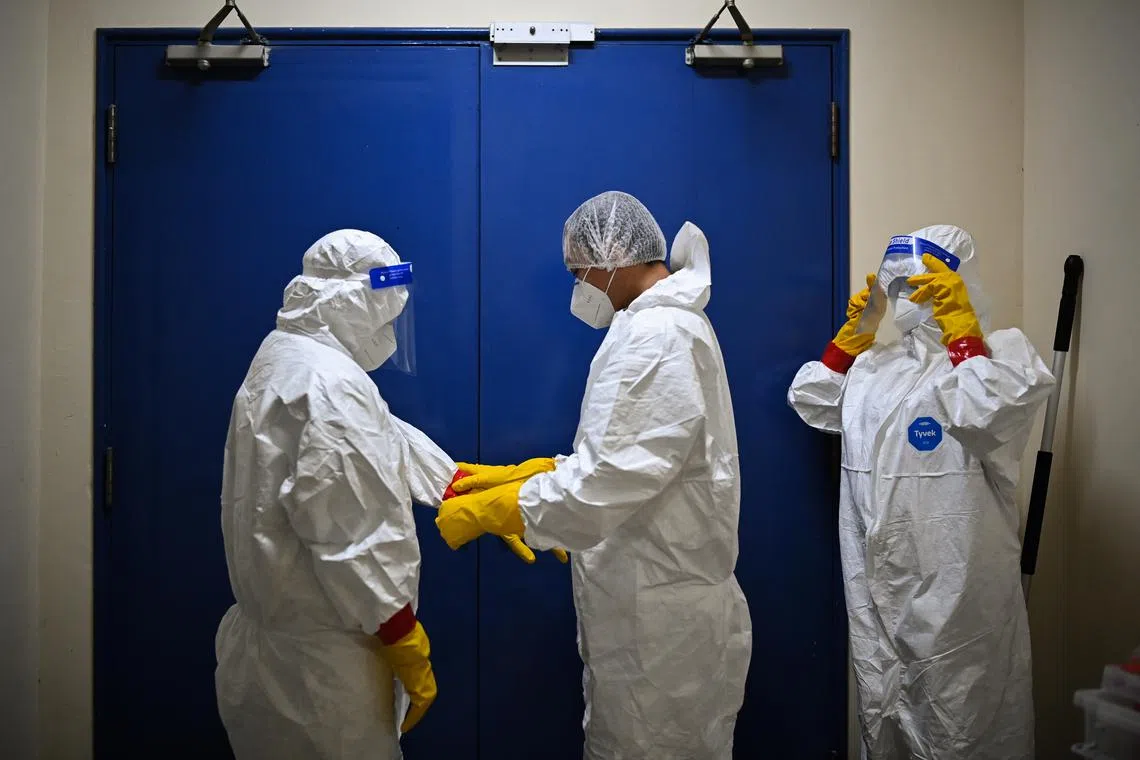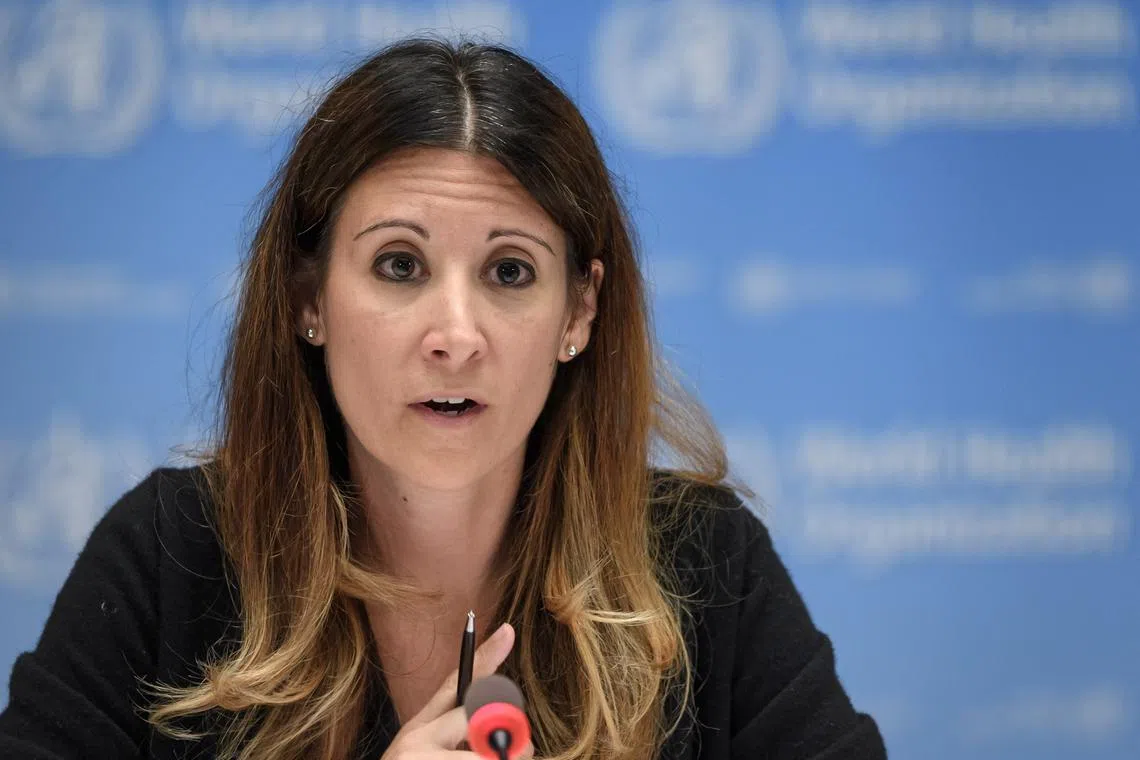World needs to start preparing for next pandemic now: Top WHO official
Sign up now: Get ST's newsletters delivered to your inbox

Countries need to leverage the trauma of Covid-19 right now to gear up for the next threat, said Covid-19 technical lead Maria Van Kerkhove.
PHOTO: ST FILE
SINGAPORE - To avert a repeat of the impact of Covid-19, the world needs to start preparing for the next pandemic
In an interview with The Straits Times on the sidelines of the 7th World One Health Congress on Friday, the World Health Organisation’s (WHO) Covid-19 technical lead, Dr Maria Van Kerkhove, said countries need to leverage the trauma of Covid-19 right now to gear up for the next threat.
“We have to use that horrible situation to build something better. If we don’t do it now, we won’t do it. We will just go from the next, to the next, to the next, and then be surprised and say, why didn’t we use that opportunity?” said the American epidemiologist.
Dr Van Kerkhove gave a keynote address to close the five-day congress held at Sands Expo and Convention Centre. It was attended by 2,400 participants in person and virtually.
In her speech, she said that in order to better tackle emerging threats, five Cs need to be in place.
These are collaborative surveillance to pick up new diseases; emergency coordination such as national action plans for prevention preparedness; access to countermeasures such as fast-track research and development; community protection; and safe and scalable care.
Dr Van Kerkhove told ST that such efforts also need to be supported by a strong workforce and financing for such programmes.
“We have to ensure that what we are doing for Covid-19, what we are doing for diseases that we know about, fits into the fiscal and political space and the psyche of all of us in terms of the other challenges we are facing, like economic crises, war, and climate change,” she said.
She added that she hopes the legally binding pandemic treaty that the WHO is planning to negotiate and draft represents a promise by countries to prevent a situation like Covid-19.
“Pandemic preparedness, I would argue, is a constant. People keep using this phrase – peacetime. I don’t think there is peacetime, we are constantly moving from fire to fire, and I think we need to ensure that we don’t let up.”
Dr Van Kerkhove said the WHO is planning for Disease X from different viral families, such as coronaviruses, and arboviruses, which are transmitted by mosquitoes.
“So all our pandemic preparedness right now is being revised based on a respiratory disease scenario, and then specificities for the known viral families and known pathogen.”
She added: “Everything has been focused on Covid-19 for so long, we have to make sure that we don’t forget the other work that needs to be done.”

Dr Maria Van Kerkhove said the WHO is planning for Disease X from different viral families, such as coronaviruses, and arboviruses, which are transmitted by mosquitoes.
PHOTO: EPA-EFE
The WHO is also currently working on a proof of concept for an interactive composite risk map that will include various pathogens, to enable better prediction of outbreaks, or mitigation, if it happens.
The map will be piloted in 12 countries, which have not been shortlisted yet.
In September, WHO director-general Tedros Adhanom Ghebreyesus said the world has never been in a better position to end the Covid-19 pandemic,
Commenting on that, Dr Van Kerkhove said it is not possible yet to predict when the pandemic can end.
She said the world is in a good situation, as there are a number of tools that can reduce severe disease and deaths.
However, the tools are not being used effectively, and 30 per cent of the world’s population have yet to receive a single vaccination dose, she added.
“We are seeing really good signs in terms of reduction in morbidity and mortality. But there’s still 10,000 people dying a week, which we can prevent.
“So how close we are to the end is completely up to us. But there is an element of chance because of changes in the virus, which we can’t predict...
“We’re hopeful and we have to remain focused and vigilant on what we’re doing.”



